Contact Lenses: How to Buy, Wear, and Care for Costume Lenses.
9

Our customer service team in the US is ready to assist you.
1-877-992-5474 Available Now
Monday - Friday
7 AM – 4 PM PT
Saturday
7 AM – 4 PM PT


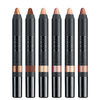
Nudestix Nude Beach 6-Piece Eye Pencil Palette
$69
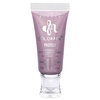
Danessa Myricks Beauty ColorFix 24-Hour Cream Color Matte Sundaze
$20
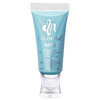
Danessa Myricks Beauty ColorFix 24-Hour Cream Color Matte Oasis
$20
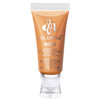
Danessa Myricks Beauty ColorFix 24-Hour Cream Color Matte Dreamsicle
$20
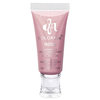
Danessa Myricks Beauty ColorFix 24-Hour Cream Color Matte Bunny
$20
Please help us maintain positive conversations here by following our guidelines below.
We reserve the right to remove comments and topics that don't adhere to the following rules. We also may remove the profile of any repeat offender. Thanks for reading and contributing!
Beautylish is a diverse, positive, and respectful community. It’s okay to disagree with someone, but be constructive—not rude. We have a zero-tolerance policy for negativity and harassment.
Take the time to make posts easy to understand by using proper spelling, grammar, and capitalization. Post topics in the appropriate category and refrain from making duplicate posts. Know that we don't allow self-promotion, advertisements, spam, commercial messages, or links to other websites or blogs. And be careful that you don't post someone else's work and present or claim it as your own.
We reserve the right to remove duplicate, miscategorized, and difficult-to-understand posts, or those we deem as advertisements, spam, or plagiarism.
Use the flag button to report inappropriate or disrespectful behavior, or email us at help@beautylish.com.
Oct 23, 2014
Emily W.
This time of year is so wonderful: candy, decorations, and most of all costumes! Many people use costume contact lenses to add a finishing touch to their costumes, though many people don't realize that if this is not approached properly it can result in serious injury and permanent vision damage.
I am not going to say to avoid costume lenses. In fact, I love them and have been wearing them myself for several years. I want to advise people about how to protect their eyes and still complete their costumes (or spice up a random Tuesday, whatever floats your boat). This is going to be long, but bear with me.
The first thing that you MUST do (this is NOT optional) is see an optometrist and get an exam and fitting. This is CRUCIAL. Everyone's eyes are unique, and not everyone can wear lenses. If your doctor finds that it wouldn't be safe for you to wear lenses for whatever reason, DO NOT WEAR LENSES.
Contact lenses are a type of semi-breathable, flexible plastic that sit on the surface of your eye. Lenses that don't fit properly can result in abrasions, ulcers, and other painful and dangerous injuries.
After you have been fitted and know your prescription, you can now purchase lenses. In the United States, it is illegal for anyone to sell lenses outside of a licensed optometry office. That means that any local store, guy on Craigslist, or pop up vendor is operating in violation of federal law. Do not purchase lenses from these vendors. There are no guarantees of safety or quality when purchasing from an illegal vendor. You may choose to purchase lenses from an optometrist. This is a very safe option: you know that the lenses you receive will match your prescription and that they are sterile and manufactured correctly. However, this is often extremely expensive ($50 and up depending on the brand, your doctor, and your prescription).
Another option is to purchase lenses online from a reputable source abroad. Note that these lenses are considered contraband in the United States, so this decision is not to be made lightly. This is where you must do your homework. Research the lenses you want, and brand. Look for reviews and photos/videos of people wearing them. Research the vendor. Find out if people have had good experience with them, if their customer service will be able to help if something goes wrong with your order, etc. Most importantly, make sure the lenses you want are in your prescription (both power and base curve). If you require a strong power or special lens type (e.g. toric), be vigilant about that too.
There are many misconceptions about foreign lenses. Many lenses come from Asian (notably Korean) manufacturers. These are regulated by the Korean equivalent to the USFDA, under strict health and safety regulations. As long as you purchase genuine lenses (counterfeits do exist), the lenses are safe. Again, do your due diligence and research the manufacturer of any lenses you are thinking of purchasing.
Expect to pay between twenty and forty dollars for a pair of lenses (more if you need a specific prescription or lens type). Then, you'll need to purchase the property supplies to care for your lenses: solution, an airtight lens case, and wetting drops. This cost varies by your local pharmacy, but isn't terribly expensive.
When your lenses arrive, they will be packaged in sterile saline in small glass vials. Before you open them, inspect the lenses carefully. Look for any deformities or abnormalities that would signify a defective lens (it happens occasionally). Most vendors will replace an unopened defective lens free of charge. If your lenses look okay in the vials, go ahead and open them. Carefully dump the liquid with the lens into your FRESHLY WASHED hand. Inspect each lens again. Look for tears, debris, bends, etc. Handle it gently so that you don't damage it. Be careful not to flip it inside out, as it is difficult to tell which way it is supposed to be once it had been flipped (and putting a lens on your eye inside out feels like you just put flaming hot sandpaper in your eye). Place the lens inside the case with the solution (not the saline it came in), and let it soak in the solution for several hours before you attempt to wear them.
Always handle your lenses with clean hands. You don't want to introduce any bacteria to your eyes. Replace the solution in the case every time you wear the lenses, or once a week if you are going a while without wearing them. Most contacts last between three months to a year before they expire (the duration will be noted on the packaging). Note: taken care of properly, lenses can be used after their expiration indefinitely, but require extreme caution and diligence in use. This is not recommended for beginners.
If you've never worn lenses before, it can take quite a while to actually put them in and take them off. Practice before you need to wear them (before Halloween, or a convention, or whatever). Give yourself some time, and if you can't get it in on the first few tries, take a break and try again the next day. Always inspect each lens each time you are going to wear them to look for debris (dust, makeup, etc), tears, bends, or protein buildup (usually on older lenses approaching or past expiry).
Costume lenses feel different in the eye than plain vision lenses. The layer of pigment that gives the lenses their color also makes them a tiny bit thicker. When you first put them in, you may feel a little discomfort for a couple minutes until your eyes adjust. Your eyes may water and you will blink several times. They should not be painful, itchy, or uncomfortable for longer than a couple minutes. If you feel any pain, take the lens out immediately. Make sure it isn't inside out, and that you don't have any debris on the lens or in your eye (like mascara flakes). Wait for any irritation to subside, and cautiously try again. If it still hurts, do not attempt to wear them.
Colored contacts should not be worn for more than a few hours at a time, and should not be worn every day. Because the lenses are thicker, they obstruct oxygen from reaching the eye. This can lead to corneal hypoxia, a condition where the eye doesn't receive enough oxygen and sustains damage. You will usually start to feel lens fatigue before this happens (your eyes feel tired, your vision may get blurry, your eyes feel dry). Using wetting drops to keep the lenses moist will help, but once you start to feel fatigue, it is time to take them off.
Similarly, NEVER EVER SLEEP IN COSTUME CONTACTS. I promise you will wake up in a fiery hell of chemical conjunctivitis, which is painful and requires a costly trip to the ER. It can result in permanent damage to your eyes, and vision loss. It doesn't matter how tired you are, if you are getting drowsy TAKE THE CONTACTS OUT. Even if you don't have your case. It is better to sacrifice a pair of contacts than your eyes.
Once you've worn contacts for a while, you'll start to develop an understanding about which brands and types work best for you. I find that lenses with higher water content (>35%) are more comfortable for me, but some find them too flexible and slippery. After some trial and error, you'll have preferences too.
Contacts are medical devices, not random accessories. Though many countries do not regulate them as strongly as the US, they are still not something to be passively bought and worn as an afterthought. You only get one pair of eyes, do not risk them for vanity. Contacts are an investment. The entire process, from exam to finally wearing them, can cost well over $100 (depending on your optometrist, and which lenses you buy and from where). Do not cheap out and skip steps to save a buck. It isn't worth going blind.
P.S. A note about sclera lenses:
Sclera lenses are contacts that cover the entire visible surface of the eye. These ALWAYS require a custom fitting because everyone's eyes are uniquely shaped. Yes, there are cheaper one-size-fits-all scleras out there. You run serous risk of injury using those lenses. While you might be able to wear Plano contacts or circle lenses (usually base curve 8.6), the curve of the sclera is not perfect and cannot be generalized. Seriously, if you are going to wear sclera lenses, invest in properly fitted custom lenses from a reputable company. This is extremely expensive, but necessary to avoid injury in the long term.
Oct 23, 2014
Kat A.
Thank you for going so into detail! really helpful :)
Oct 23, 2014
Alyx T.
Awesomely written. And just to add,
READ YOUR CONTACT SOLUTION BOX. some contact solutions require a certain case (they usually come with them) and some require the contacts to soak for a minimum of x amount of hours. Do NOT take this lightly. The solution is active during the x amount of hours. It's peroxide, and the reason it requires a special case is during the x amount of hours, the case has a platinum coating inside (not around the lenses) and breaks down the peroxide, so after that x amount of hours, it's just water and oxygen. So then it is safe to use to clean your lens, and you are able to wear them.
If you put your contacts in before the solution has been broken down, it'll feel like your eyes are in hell and you can go blind (or several other damaging things can happen) remember the peroxide you put on your scrapes and it bubbles and cleaned it out? Yeah that's what'll it'll do. On your eyeball. It's not fun and it's incredibly dangerous.
With that being said, I use the solution like that (clear care I believe is the most common brand) because it gets the contact cleanest without damaging. You also do not have to clean your contact as well, since you clean it lightly before putting it in the case and directly put it into your eye afterwards. It also helps your contacts retain moisture more than a lot of the normal brands. So there are tons of pros to this. Just PLEASE read the instructions carefully to avoid burning your eyeballs.
Oct 23, 2014
Alyx T.
Oh and never use fiber mascaras while wearing contacts. The little fibers will fall into your eye and likely damage your contact which can cause damage to your eye.
Oct 23, 2014
Andhera R.
I didn't know you weren't supposed to use fiber mascaras with contacts Alyx, thanks. Never gotten any fiber mascara but I've always wanted some. Now I know not to unless I have glasses on.
Oct 23, 2014
Emily W.
Excellent points Alyx! Yeah I accidentally used some of my mom's Clear Care once, OUCH. I like BioTrue (Bausch & Lomb).
One of my friends tried that infamous fiber mascara from the Company That Shall Not Be Named because the rep said it was lens-safe. NOPE. She ended up with a severely abraded cornea and had to have corrective laser surgery.
Oct 23, 2014
Janie S.
Excellent advice from all.
Oct 23, 2014
Lorena C.
Omg thank you so much emily w. This so super important I hope people read this :)
Oct 24, 2014
Nikelle B.
I'm so glad you posted this! great post.
Oct 24, 2014
Emily W.
Does anyone think it a good idea to share some reputable lens vendors? I'm hesitant because it opens the door for people to just go buy lenses without first setting their optometrist and doing any research. But on the other hand, it might be helpful to those who have already gotten their prescription and are looking for safe lenses. What do you guys think?